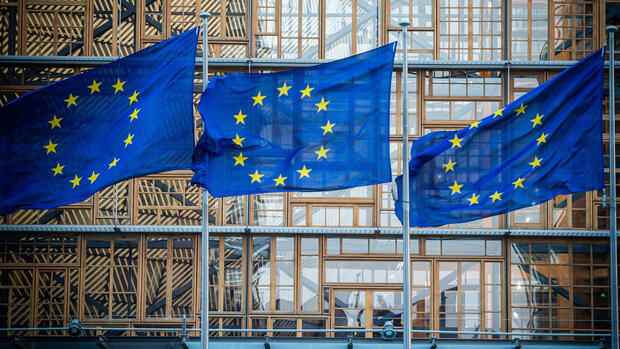The “Digital Services Act” is intended to prevent social media from spreading conspiracy theories in particular.
(Photo: obs)
Anyone remember the old internet? Of this promising forum that suddenly made it possible for everyone to share their ideas and messages with the whole world and find like-minded people?
For a while it seemed like the internet was making the world more and more democratic. One remembers the Arab Spring, when some dictators no longer had anything to oppose the masses networked via Facebook.
Today, it is not human rights activists who network there, but mainly extremists incited by conspiracy theories. And the platforms make money from it. The meta group in particular reacted too late, too hesitantly and too awkwardly to change that. Friendly appeals have done little to change that.
It is good that the EU is now intervening in the platforms’ business. With the “Digital Services Act” it takes on some of the responsibility. In particular, it does this by regulating the algorithms that social media uses to sort their content.
Top jobs of the day
Find the best jobs now and
be notified by email.
These algorithms determine whether we are confronted with cooking videos, fitness tips or fake news on our cell phones. They can pull people into parallel information worlds from which they can hardly break out.
The platforms should account for such effects in the future; Scientists should be granted insight; Users should be able to switch off the algorithm; there should be limits to the targeted display of advertising. In retrospect, it is hard to understand that it took so long for politics to address the problem.
Mission of historic proportions
Brussels is thus on a historic mission that no one else could advance in this way at the moment. Because in the USA, which would be responsible for this as the home of most social media, the parallel society has already spread too far. The Americans are counting on Europe to solve the problem they are partly to blame for.
What is important now is that the EU continues to do so. You have to get enough staff to meet your demands. It needs to fund researchers to better understand how algorithms work. It must be prepared to adapt its law again and again.
It is best for Europe to ensure that the platforms themselves pay for all this effort. And above all, the EU should be confident enough to resist the tech-corporate lobbyists.
More: Now there’s finally an answer to the destructive power of social media
